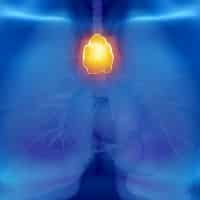A key component of the immune system, T lymphocytes are produced by the thymus. But, with aging the thymus atrophies, resulting in progressively reduced production of new T cells. Howard T. Petrie. From The Scripps Research Institute (TSRI; Florida, USA), and colleagues devised a computational approach for analyzing the activity of genes in two major thymic cell types – stromal cells and lymphoid cells, in a mouse model. The team found that stromal cells were specifically deficient in an antioxidant enzyme called catalase, which resulted in elevated levels of the reactive oxygen by-products of metabolism and, subsequently, accelerated metabolic damage. To confirm the central role of catalase, the researchers raised levels of this enzyme in genetically altered animal models, resulting in preservation of thymus size for a much longer period. In addition, animals that were given vitamin C and antioxidants – which were observed to protect from the effects of aging on the thymus. The study authors remark that their data: “thus provid[es]a mechanistic link between antioxidants, metabolism, and normal immune function.”
Aging Alters the Immune Response
Ann V. Griffith, Thomas Venables, Jianjun Shi, Andrew Farr, Holly van Remmen, Luke Szweda, Mohammad Fallahi, Peter Rabinovitch, Howard T. Petrie. “Metabolic Damage and Premature Thymus Aging Caused by Stromal Catalase Deficiency.” Cell Reports, 6 August 2015.
RELATED ARTICLES




